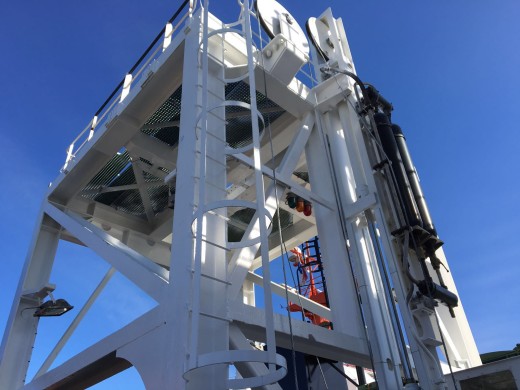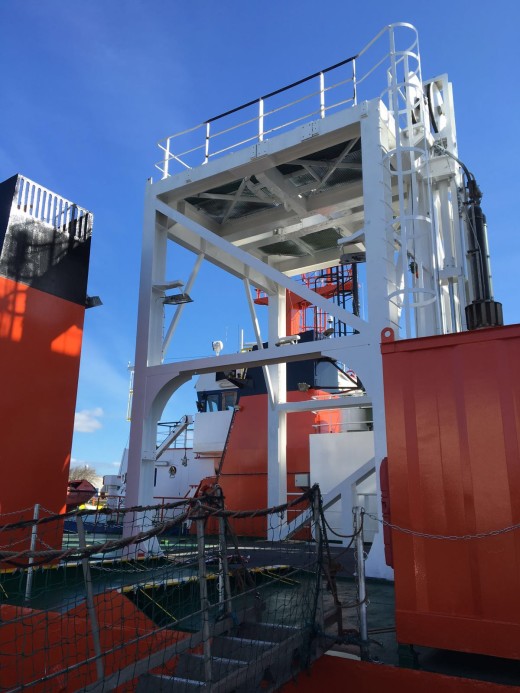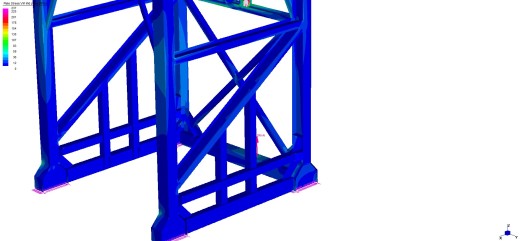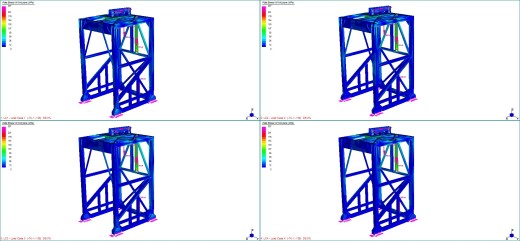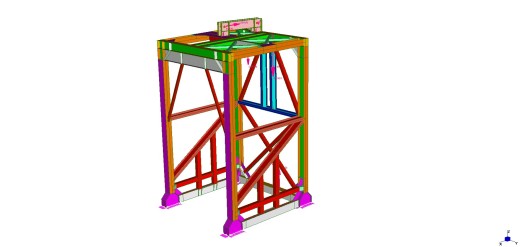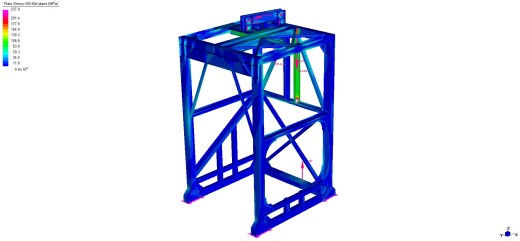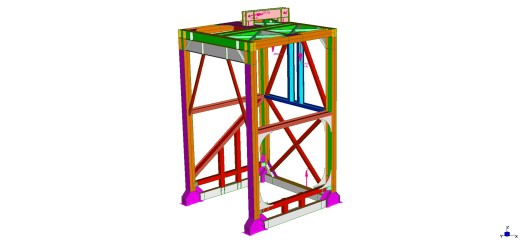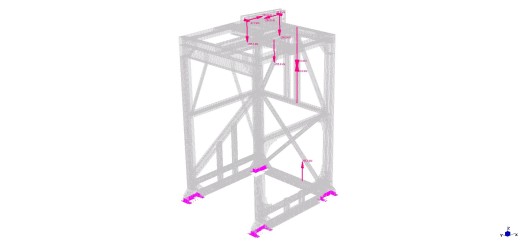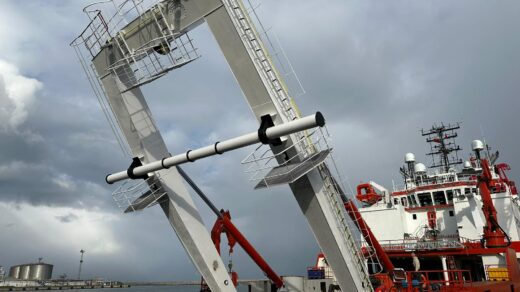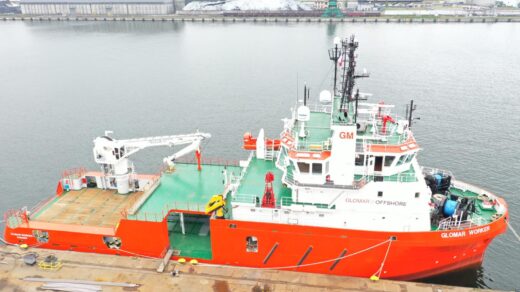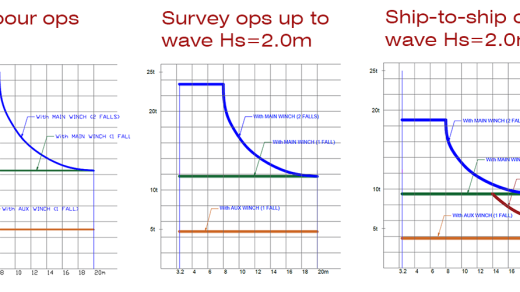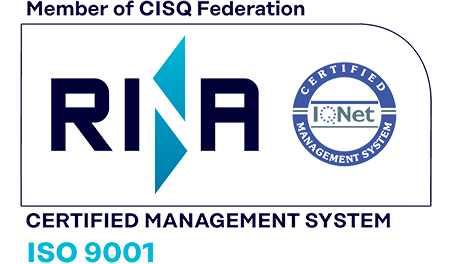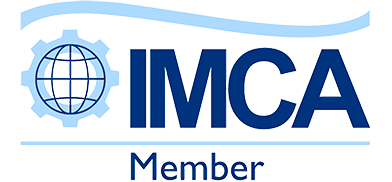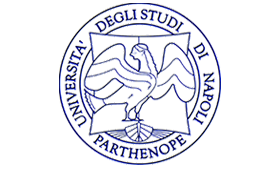- Name of Project: CALCULATION & FEA REPORT GANTRY CRANE (SWL 33ton)
- Scope of Work: The crane underwent modification works on the starboard side. Our scope of work was to ascertain that these modifications had not affected the original designed SWL.
- Approach: The analysis of the structures of the Gantry Crane was carried out by means of 3D modeling and FEA (Finite Element Analysis).
- Load Scheme: forces resulting from the winch,
forces resulting from the heave compensation,
forces on sheaves,
main static forces acting on the crane structures,
forces due to ship inclination and motion. - Objective: to demonstrate the same stress status of un-modified structures
- Workflow: PREPROCESSING (Modeling)
- Define the geometric domain of the problem.
- Define the element type(s) to be used.
- Define the material properties of the elements.
- Define the geometric properties of the elements (length, area, and the like).
- Define the element connectivities (mesh the model).
- Define the physical constraints (boundary conditions).
- Define the loadings.
SOLUTION
- Computes the unknown values of the primary field variable(s).
- Computed values are then used by back substitution to compute additional, derived variables, such as reaction forces and element stresses.
POSTPROCESSING (Visualization of solution results)
- Postprocessor software contains sophisticated routines used for sorting, printing, and plotting selected results from a finite element solution.
- Stresses, strains, and deformations are plotted and examined to see how the part responded to the various loading conditions - Test: The tower was overload tested with successful results and accepted by the Charters


